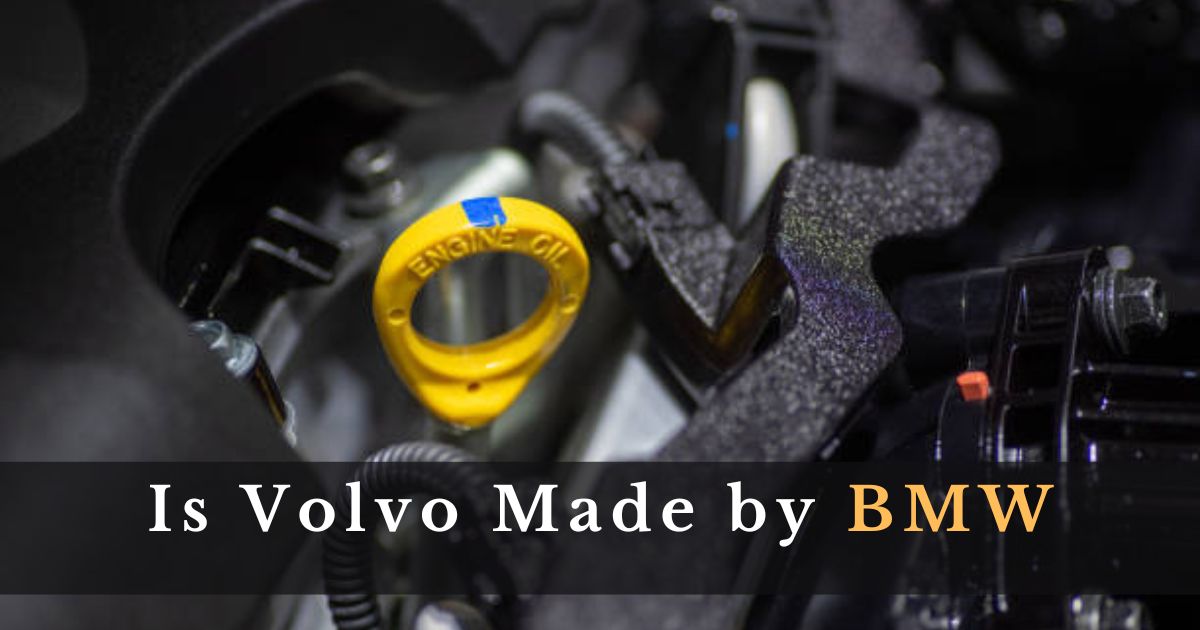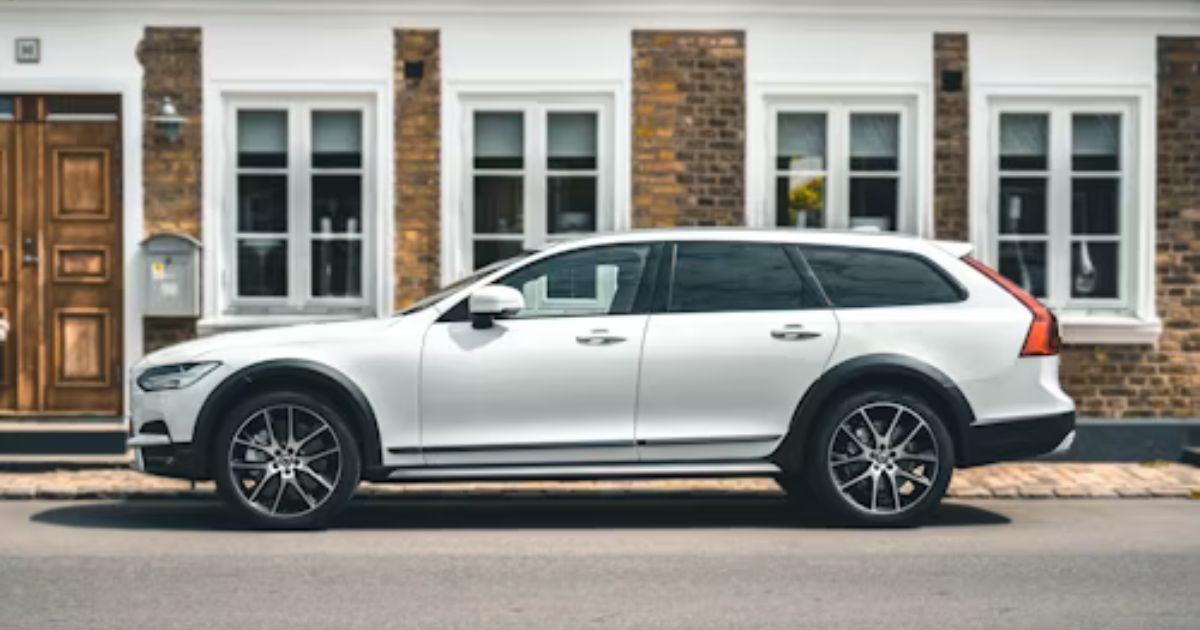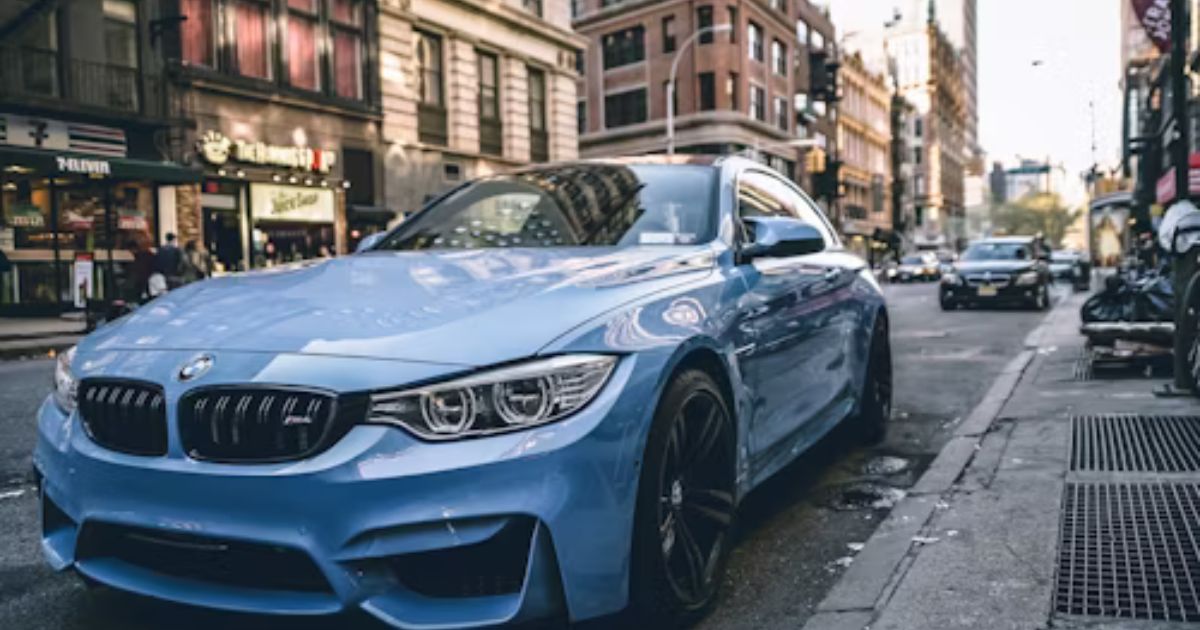Is Volvo made by BMW, When we think of luxury cars, both Volvo and BMW are often mentioned. These two brands are known for making high-quality cars with advanced technology and a focus on safety. However, some people wonder if BMW makes Volvo cars. The answer is no. Let’s explore the relationship between these two famous car brands and understand what makes each one unique.
Is Volvo Made by BMW?
Introduction
Have you ever wondered if Volvo is made by BMW? This is a common question that car enthusiasts and casual drivers alike often ask. Understanding who owns and makes different car brands can sometimes be confusing, but it’s crucial for making informed purchasing decisions. Let’s dive into the histories, ownerships, and manufacturing processes of Volvo and BMW to clear up any misconceptions.
History of Volvo
Founding and Early Years
Volvo was founded in 1927 in Gothenburg, Sweden. The company started with a vision to produce cars that could withstand the harsh Swedish climate and rough roads.
Evolution Over the Decades
Over the years, Volvo has evolved significantly. From manufacturing robust sedans and wagons in the mid-20th century, Volvo has expanded its lineup to include SUVs, electric vehicles, and more.
Key Milestones in Volvo’s History
Some key milestones include the introduction of the three-point seatbelt in 1959, a revolutionary safety feature that has saved countless lives. Volvo’s commitment to safety and innovation has always been a core part of its identity.
History of BMW
Founding and Early Years
BMW, or Bayerische Motoren Werke, was established in 1916 in Germany. Initially, BMW focused on aircraft engines before transitioning to motorcycles and eventually cars.
BMW’s Growth and Development
BMW’s journey has been marked by innovation and luxury. The brand quickly established itself as a leader in high-performance vehicles and cutting-edge technology.
Significant Achievements and Innovations
BMW has a rich history of achievements, including the development of the first electric car prototype in the 1970s and the launch of the iconic BMW 3 Series in 1975.
Ownership and Manufacturing
Understanding Car Brand Ownership
It’s important to understand that car brands can be owned by larger automotive groups. Ownership can affect everything from design to production processes.
Common Misconceptions About Car Brands
One common misconception is that car brands like Volvo and BMW are linked in terms of manufacturing or ownership, which we’ll clarify.
Volvo’s Ownership
Current Owner of Volvo
Volvo is currently owned by Zhejiang Geely Holding Group, a Chinese multinational automotive company. Geely acquired Volvo from Ford in 2010.
Transition of Ownership Over the Years
Before Geely, Volvo was owned by Ford Motor Company from 1999 to 2010. Each transition brought new strategies and innovations to Volvo.
BMW’s Ownership
BMW’s Current Structure
BMW remains an independent company, owned by shareholders with the Quandt family as major stakeholders. This independence allows BMW to maintain its unique brand identity.
Major Shareholders and Stakeholders
The Quandt family holds almost half of BMW’s shares, ensuring significant influence over the company’s direction and decisions.
Volvo and BMW: The Connection
Clarifying the Relationship
Volvo is not made by BMW. They are separate entities with distinct ownership and manufacturing processes. There is no corporate connection between the two.
Collaborations and Partnerships (if any)
While there have been no significant collaborations between Volvo and BMW, both companies occasionally partner with other brands for specific projects or technology sharing.
Competitive Landscape
Volvo and BMW compete in the premium car market, each offering unique strengths. Volvo focuses heavily on safety and practicality, while BMW emphasizes performance and luxury.
Volvo’s Manufacturing Process
Locations of Volvo Factories
Volvo has manufacturing plants in Sweden, Belgium, China, and the United States. Each facility is designed to maintain high standards of quality and efficiency.
Key Components and Production Techniques
Volvo is known for its advanced safety features, innovative design, and sustainable manufacturing practices, including the use of eco-friendly materials.
BMW’s Manufacturing Process
BMW’s Global Manufacturing Network
BMW operates factories in Germany, the United States, China, and several other countries. Each plant is equipped with state-of-the-art technology to ensure top-notch quality.
Production Standards and Techniques
BMW’s production emphasizes precision engineering, cutting-edge technology, and a meticulous attention to detail, ensuring their vehicles meet the highest standards of performance and luxury.
Market Position of Volvo
Volvo’s Market Share
Volvo holds a significant market share in the premium car segment, especially in Europe and China. The brand is known for its commitment to safety and innovation.
Target Audience and Market Strategy
Volvo targets consumers who prioritize safety, reliability, and eco-friendliness. Their marketing strategy focuses on these core values, appealing to families and environmentally conscious drivers.
Market Position of BMW
BMW’s Market Presence
BMW enjoys a strong global presence, particularly in Europe, the United States, and China. The brand is synonymous with luxury, performance, and advanced technology.
Customer Demographics and Sales Strategy
BMW targets affluent customers who seek luxury, performance, and cutting-edge features. Their sales strategy includes a strong emphasis on brand prestige and innovative marketing.
Comparing Volvo and BMW Vehicles
Performance and Reliability
Volvo cars are known for their reliability and safety, while BMWs are celebrated for their performance and driving experience. Both brands offer high-quality vehicles, but cater to different driving preferences.
Design and Innovation
Volvo’s design philosophy centers on Scandinavian simplicity and elegance, with a focus on practicality and safety. BMW, on the other hand, emphasizes sporty, dynamic designs and technological innovation.
Safety Features
Volvo is a pioneer in automotive safety, constantly introducing new safety technologies. BMW also offers a suite of advanced safety features, but it’s Volvo that often leads the way in this area.
| Feature | Volvo | BMW |
| Manufacturer | Independent (Geely Holding Group) | Independent |
| Design Philosophy | Focuses on safety, comfort, and functionality with a Scandinavian aesthetic |
Focuses on performance, handling, and a sporty aesthetic
|
| Model Categories (USA) | Sedans, SUVs, Wagons |
Sedans, SUVs, Coupes, Convertibles, Gran Turismo
|
| Price Range (USA) | $40,000 – $100,000+ |
$35,000 – $150,000+
|
Consumer Perceptions
How Customers View Volvo
Consumers see Volvo as a reliable, safe, and eco-friendly brand. Volvo’s commitment to sustainability and safety resonates well with its target audience.
How Customers View BMW
BMW is perceived as a luxury brand offering high performance, cutting-edge technology, and a prestigious driving experience. It appeals to those who value status and driving enjoyment.
Future of Volvo and BMW
Upcoming Models and Innovations
Both Volvo and BMW are investing heavily in electric vehicles (EVs) and autonomous driving technology. Volvo aims to become a fully electric car brand by 2030, while BMW continues to expand its EV lineup and explore new innovations.
Strategic Goals and Vision
Volvo’s strategic goal is to lead in sustainability and safety, while BMW focuses on maintaining its luxury and performance edge, along with embracing future mobility solutions.
To sum up, Volvo is not made by BMW. They are two distinct brands with different ownerships, manufacturing processes, and market strategies. Volvo is owned by Geely, a Chinese company, while BMW remains an independent German brand. Both offer exceptional vehicles, but they cater to different audiences and priorities. Whether you choose a Volvo or a BMW, understanding their histories, ownership, and what each brand stands for can help you make a more informed decision.
FAQs
Is Volvo a luxury brand?
Yes, Volvo is considered a luxury brand, known for its high safety standards, innovative features, and elegant Scandinavian design.
Are Volvos more reliable than BMWs?
Volvos are generally praised for their reliability and safety, while BMWs are known for their performance and luxury. Reliability can vary depending on the model and maintenance.
Where are Volvo cars manufactured?
Volvo cars are manufactured in several countries, including Sweden, Belgium, China, and the United States.
Does BMW own any other car brands?
Yes, BMW owns several other brands, including MINI and Rolls-Royce.
How can I choose between a Volvo and a BMW?
Choosing between a Volvo and a BMW depends on your priorities. If you value safety and eco-friendliness, Volvo may be the better choice. If you prioritize performance and luxury, BMW might be more suitable.





